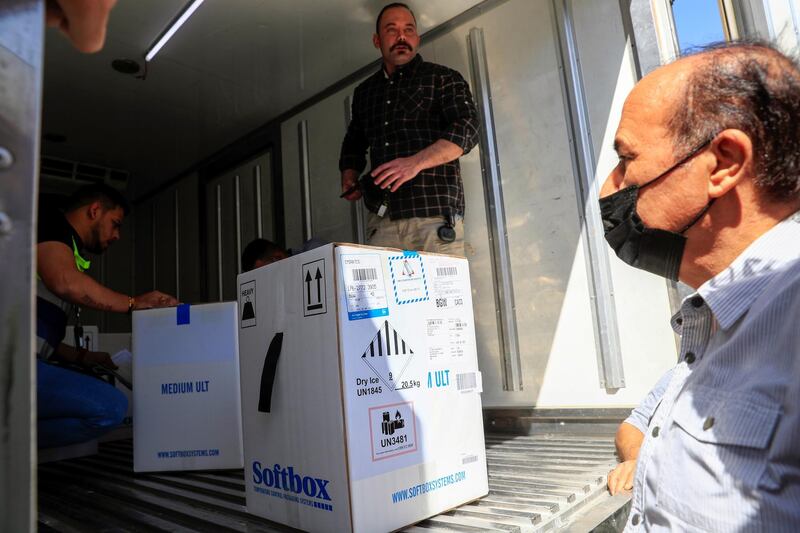Iraq on Sunday received its first shipment of Pfizer-BioNTech vaccines as infections surged.
The country received 50,000 doses of the vaccine as the health ministry recorded 6,791 new cases of the deadly virus, bringing the total number of infections to 924,946.
The toll since the pandemic began reached 14,713 after 35 people died in the past 24 hours.
"The new vaccine will be made available from tomorrow through 50 outlets in Baghdad and provinces around the country," Health Minister Hassan Al Tamimi said.
The vaccine will be made available to all citizens, Mr Al Tamimi said, as he encouraged the public to be vaccinated in official clinics as cases increase rapidly.
“We will be getting a new shipment of the Pfizer vaccine every week,” he said.
Baghdad also received a new shipment of 200,000 doses of the Sinopharm vaccine on Sunday.
Iraq now offers three types of coronavirus vaccines – Sinopharm, Pfizer-BioNTech and AstraZeneca, the health minister said.
More than 140,000 Iraqi citizens have received the vaccine, Mr Al Tamimi said. The public had been “negative” about vaccination, he said.
“We assure everyone that the vaccines we have received have been approved by the World Health Organisation and urge everyone to go and get [inoculated].”
“The only way to overcome this pandemic is to abide by the WHO regulations and to get vaccinated,” Mr Al Tamimi said, warning of “dire consequences” ahead because citizens are not heeding coronavirus prevention measures, after the country reached a new high in daily infection rates last week.
Iraq recorded more than 8,000 daily cases last week, the highest since the pandemic started last March.
Health authorities have rushed to impose a night-time curfew in cities around the country, in an effort to contain the spread of the virus.
Iraq has a chronic shortage of medicines, trained medical staff and clinics.








